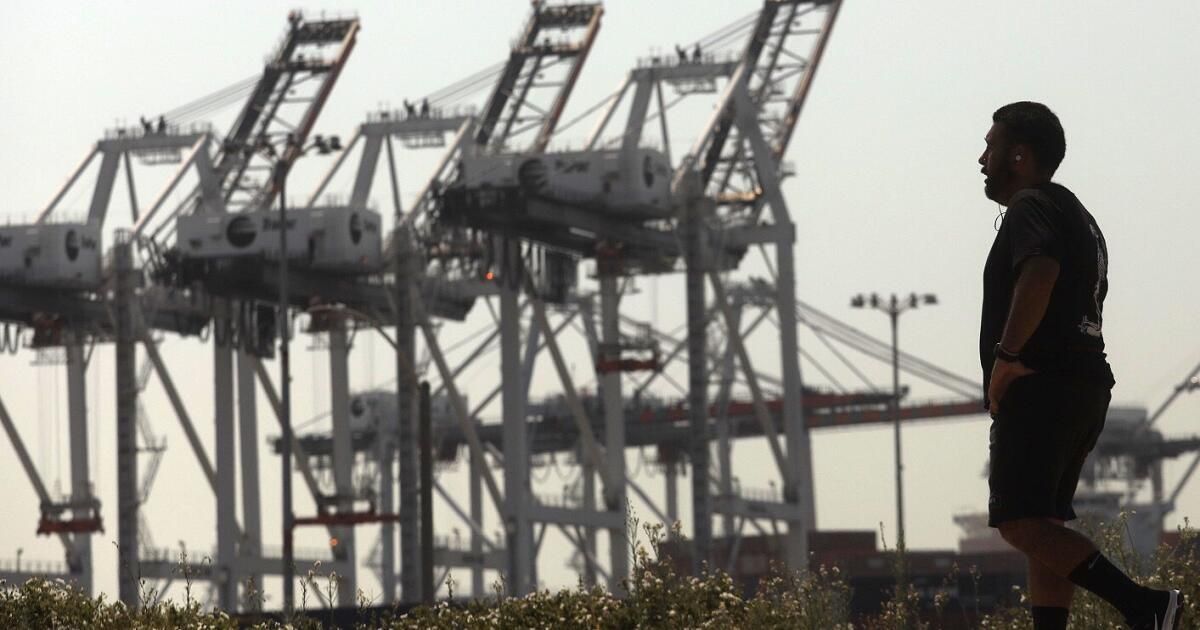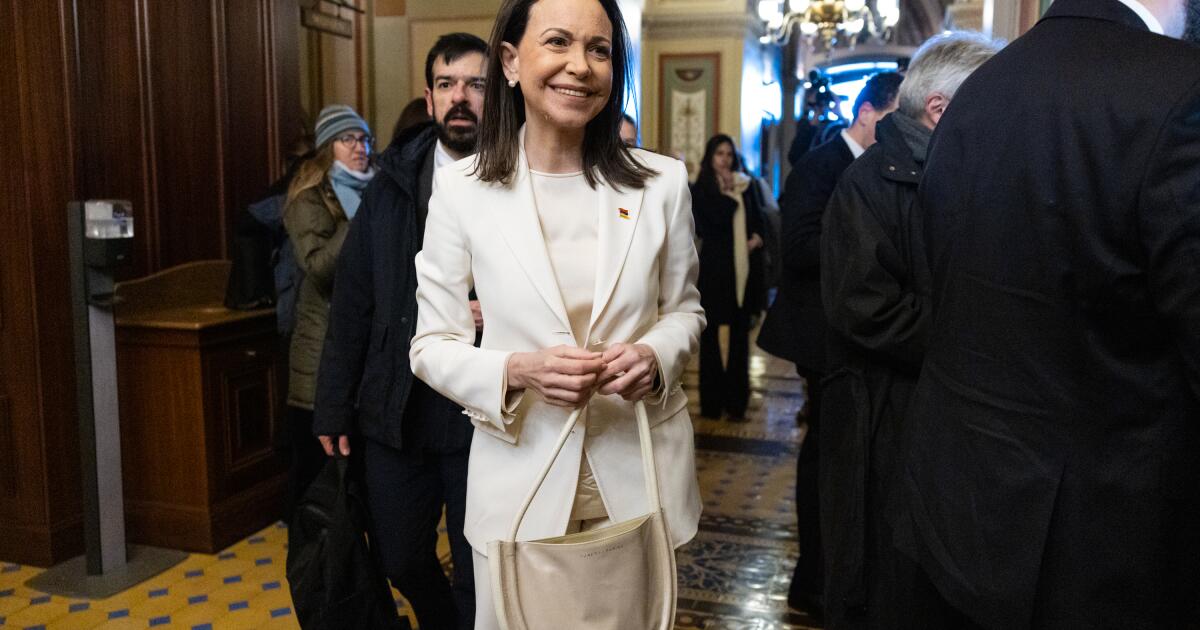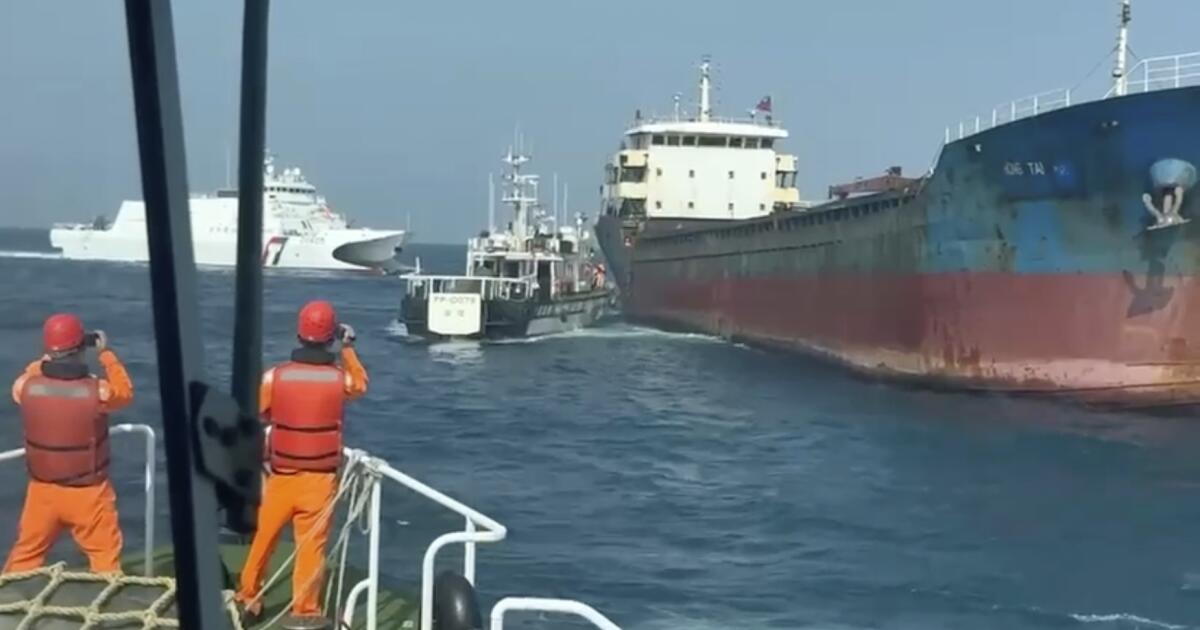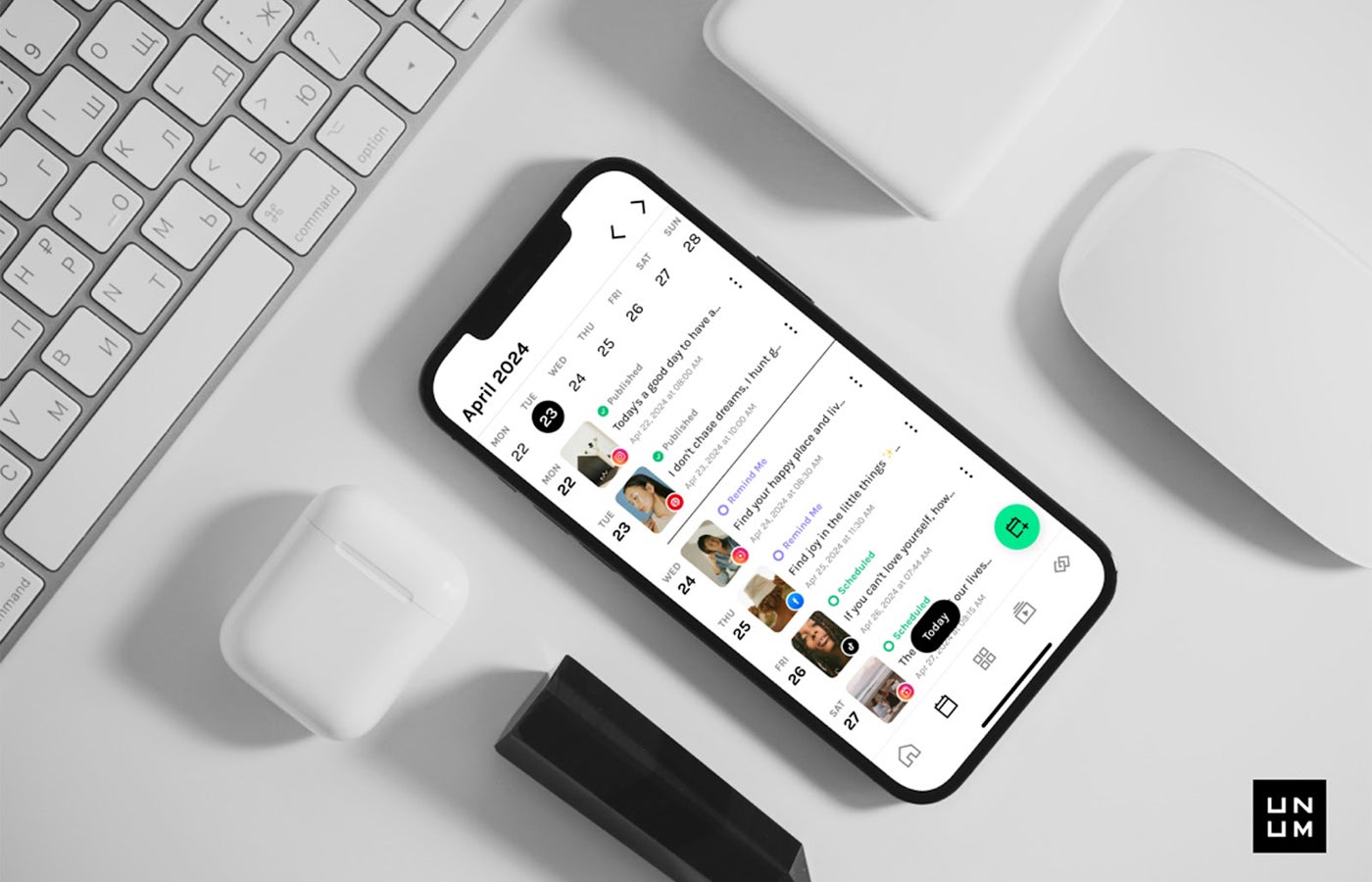The next time you contemplate Southern California's notoriously hazy skies and dirty air, remember that smog regulators still aren't using their power to crack down on one of the region's biggest polluters.
Year after year, the South Coast Air Quality Management District's board of directors has chosen to delay and waste time on fruitless talks rather than impose regulations to curb diesel emissions from trucks, ships, trains and equipment that transports cargo in the ports of Los Angeles-Long Beach. Together, publicly owned ports are the largest source of smog-producing pollution in the country's smoggiest region.
Last week, board members did it again. They held a retreat with a day dedicated to port pollution at a Rancho Mirage resort, more than 100 miles from the port communities most harmed by the agency's inaction. And there is still no guarantee that the board will vote this year to enact long-delayed regulations to clean up the ports.
AQMD Board President Vanessa Delgado defended the retreat at the Westin Rancho Mirage Golf Resort & Spa as a “learning session.” Air district officials argued it could help build support for the rules. The board has long failed to make progress because of powerful industry and union interests who oppose regulation. But it's a bad look for board members to escape into a non-action retreat, away from residents and advocates who have been clamoring for cleaner air.
Anyone could have attended the public meeting, which was AQMD's annual retreat for its 13-member board of local officials from Los Angeles, Orange, Riverside and San Bernardino counties. Industry lobbyists and port staff were there in person to rub shoulders and make their arguments. But there were few community members present at the board session Thursday, which was held in a chandelier-lined ballroom and followed by a reception with hors d'oeuvres on an adjacent patio.
Port pollution degrades air quality inland, but hardest hits communities of color in port-area neighborhoods that suffer higher rates of asthma, cancer and other life-threatening illnesses. During hours of presentations and expert panels, board members learned of the thousands of emergency room visits for asthma, heart attacks and premature deaths that could be avoided if the region could reduce pollution. They also heard about the challenges posed by deploying cleaner tugs, locomotives and cargo ships, hydrogen bunkering and electric charging stations.
Representatives from the Port of Los Angeles and the shipping industry, who attended in person and spoke during public comments, focused on how challenging and expensive it will be to install zero-emissions technology and how better it would be for the agency to collaborate than to do so. regular. A lawyer for an environmental group, who followed the meeting remotely, pushed for strict rules to address the “public health crisis.”
Delgado ended the five-hour meeting Thursday with comments suggesting she is reluctant to impose more regulations on ports when they will already find it difficult enough to meet their existing obligations. But in a later interview, she said she is committed to adopting a rule by the end of the year that will be “very action-oriented, to have specific projects, to have more tangible, measurable goals that we can actually implement.”
Some members, including Riverside Mayor Patricia Lock Dawson and Los Angeles County Supervisor Holly Mitchell, expressed optimism about moving forward. Still others pointed to infrastructure fuel supply challenges, power grid demands and employment impacts as reasons to continue delaying action.
“We are not prepared,” said Lynwood Mayor José Luis Solache.
Among those unable to travel to Rancho Mirage was Theral Golden of the West Long Beach Association, a community group that has long pressured the ports, AQMD and other local agencies to clean up the air in its neighborhood adjacent to the port. In an interview he asked why the air board did not meet closer to the affected communities and why a withdrawal was necessary.
“They need to do the right thing and provide relief to these children who grow up going back and forth to the hospital with asthma that is directly related to the impacts of pollution,” Golden said.
Two people have enormous power to change this: Los Angeles Mayor Karen Bass and Long Beach Mayor Rex Richardson.
His predecessors in 2017 set major goals to shift to pollution-free equipment in ports by 2030 and trucks by 2035, but that transition has only just begun. Of the 16,000 active trucks serving ports today, only about 300 are zero-emission electric or hydrogen fuel cell models. More than 90% of equipment at the Port of Los Angeles and 80% in Long Beach still runs on diesel and other fossil fuels, according to their latest inventories.
Municipally owned ports, whose leaders answer to mayors, have long opposed regulation by the AQMD, and there have been no external changes on the matter under Bass or Richardson. Both mayors must change course quickly to meet their own clean air plans and climate goals.
The US Environmental Protection Agency's decision earlier this year to reject California plan Cleaning up ozone, the invisible, lung-burning gas in smog, means the region could face tough federal penalties, including strict new permitting requirements, fees for businesses and the loss of billions of dollars in funding of roads. If the current health damage isn't compelling enough for Bass, Richardson and the AQMD board to act, perhaps the threat of economic disruption before Los Angeles hosts the 2028 Olympics is.
It must be nice for air quality board members to escape for a few days to a resort with lush gardens, sparkling pools, and clear views of the San Jacinto Mountains. But clean air is a luxury that most people in the diesel-choked communities of Wilmington, West Long Beach and the 710 corridor still don't enjoy.
Enough of useless workshops, aimless conversations and leisurely retreats. It's time for regulators to do their job and adopt the strictest possible rules on port pollution by the end of this year.












